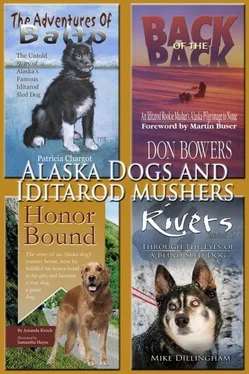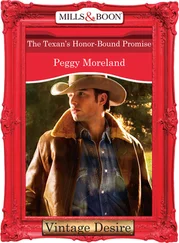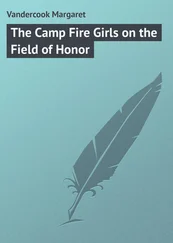This is precisely what happened on the Iditarod last year after we steamed up the Happy River hill in bright sun and 40-degree temperatures. However, this time none of the females are in heat and I can use my ace in the hole: Socks. I quickly put Old Reliable up front and stick the ringleader of the sit-down strike in the sled bag to let her cool off. Then with a quick “Okay” we march off across the snow desert of the lake.
As usual with Socks, we’re not going very fast, but we are most assuredly moving and show every indication of continuing. If so many of the ladies hadn’t been so seductive on the Iditarod last year, turning Socks into a slobbering basket case like all the other males on the team, I could have simply put him up front and kept moving when the female leaders faded out. I’d certainly have been into Rainy Pass a day or two earlier. Oh, well — I’ll have another chance a month and half from now to make good.
With Mister Automatic up front we move steadily across the chain of lakes down to Cow Lake, where I lost the team on the outbound leg. The hill coming down onto the lake looks just as bad as it did when I got flipped off the sled, with absolutely no snow. I take a quick look for my missing mitten but it’s not to be found; I’d hoped to pick it up if I could because it’ll cost 70 or 80 bucks to replace it.
After Cow Lake the inbound race trail takes a shortcut back to Big Lake we didn’t use coming out. Like many other trails in Alaska, the cutoff follows a seismic survey line. Cleared of trees years ago by petroleum survey crews, such avenues through the forest become de facto winter highways once the uneven ground has been covered with snow — only there hasn’t been enough snow to cover up the stuff that’s supposed to be covered up.
What I thought was going to be a reasonably easy 12 miles to the finish suddenly turns into the worst stretch of trail I’ve seen so far. Entire trees are down across the trail, which is also strewn liberally with stumps, rocks, and all manner of brush and other obstructions. Still, I can see where other sleds have made it through, so I swallow another handful of Tums and hold on tightly.
For the next five miles I do more serious sled handling than I’ve done in my short but (by now) very eventful mushing career. The swath through the trees — I can’t dignify it by calling it a trail — runs like a Roman road straight through the forest, directly up and down whatever happens to be in its path. There have been no attempts to find easier ways down through gullies or up over the short, sharp hills. I think the Roman engineers would’ve laughed themselves silly looking at this barbarian imitation of their work.
Luckily, the worst hazards have been marked with crossed trail markers. One of them is a ravine perhaps 50 feet deep and twice that across, with impossibly steep sides. At the very bottom, just when the dogs are moving fastest despite my attempts to keep them slowed down, the trail makes a sudden swerve to cross the channel of the stream responsible for this monstrosity. As the team jogs right and then back to the left, I’m left gaping at the open creek bed, which looks like a tank trap about three feet wide and as many deep.
An old wooden pallet has been wedged into the banks as a sort of bridge, and someone has thoughtfully tossed a bale of straw next to it; the straw has obviously been smashed by more than a few drivers who missed the crossing. I manage to keep one runner on the alleged bridge while planting one foot on the bale to keep the sled upright. I stumble in the straw and get dragged behind the sled as the team inexorably pulls it on up the opposite near-cliff. As I finally regain my precarious perch on the runners, I can at least congratulate myself for not wrecking the sled, although I may have wrecked my shoulder and certain other parts of my person.
Now I know why Martin Buser, who trains on these trails, suggested the race not use this segment for the outbound leg. He was worried fresh teams would have been impossible to control on this stretch with the minimal snow cover, and especially in the ravine. Having now seen it firsthand, I heartily applaud his foresight; the ravine would have made the hill down to North Rolly Lake look like kindergarten. Besides, I don’t think the borough would have had enough emergency vehicles to pick up all the pieces of sleds, dogs, and drivers.
By the time we get to the Little Susitna River I’m not surprised at anything any more. This Zen-like state of equanimity is a blessing because it keeps me from running screaming into the woods when the trail quite literally drops down to the river ice over a sheer five-foot bank. The dogs have to jump down onto the river ice while I keep the sled from tumbling on top of them. When I finally shove the sled over the edge it is vertical, and almost goes over on its back until the dogs pull the front end forward. All I can do is hang on to the handlebar for the knee-popping drop, which I manage to survive without breaking anything. The other bank of the 40-foot wide river is the same thing in reverse: the dogs somehow scramble up (I don’t know exactly how) and then I have to lever the sled up and hold on while they pull everything up and over the lip.
Fortunately the Little Su marks the end of the obstacle course and the trail becomes merely awful once we’re up the bank. A couple of miles later we swing onto an open slough where a pair of snowmachiners is waiting. I stop to ask them what the trail is like ahead; they say it’s okay. I tell them it’s been a horror story behind me, but they allow as how they wouldn’t know about that because nobody’s been crazy enough to drive a snowmachine over it.
I inquire how far it is to Big Lake; it’s only a couple of miles, for which I am profoundly thankful. Then one of them says, “By the way, you’re ninth.” I almost fall off the sled in surprise. There’s no way I can be so far up in the standings unless everyone else has scratched, gotten lost, or been abducted by aliens. I know almost half the original 26 starters have dropped out, but that still doesn’t put me into the top 10. All I can do is shake my head and push on; this race is getting weirder by the mile.
As we push on across the open swamps interspersed by stands of spruce and birch, the dogs seem to be flagging a bit in the bright sun when we cross the exposed areas. I try to remedy the situation by singing to them; the only song I can think of off the top of my head is Hobo Jim’s Iditarod song, whose refrain of “Give me a team and a good lead dog and a sled that’s built so fine” seems marvelously appropriate for what we’ve come through.
My serenade actually appears to work; I can see the dogs’ ears prick up and one or two will occasionally peek around to see what’s making the terrible noise. I feel like an overdressed arctic cowboy crooning to the herd, but there’s nobody out here to critique me, and the dogs seem to enjoy it. They keep pulling steadily and soon enough we bounce onto the ice of Big Lake; the finish line is only a few miles ahead and I think the dogs want to get there as badly as I do. Our collective fun-meter is pegged by now, and all I can think of is a steak dinner and the dogs no doubt are daydreaming about their cozy boxes full of straw.
As we proceed at a civilized pace across the lake I wonder if anyone is watching from the houses and lodges lining the shoreline. If this were a weekend, there would be thousands of people out here, since this is one of Anchorage’s major getaway destinations. Even if we don’t have an audience, I’ve got to feel a little proud that we’ve made it this far and are still looking good, no matter if the winner did pass this way more than a day earlier.
At three o’clock we round the last bend and I see the finish line in front of the Klondike Inn and its icebound boat docks. There’s not a soul in sight. As we close on the banner strung across the ice, I’m trying to decide whether to run the dogs over to the truck, which is still parked out on the lake, or drive them up to the lodge. Then a solitary figure darts out of the bar and beats us to the chute by 50 feet. He tells me he’s the checker as he welcomes us in.
Читать дальше












